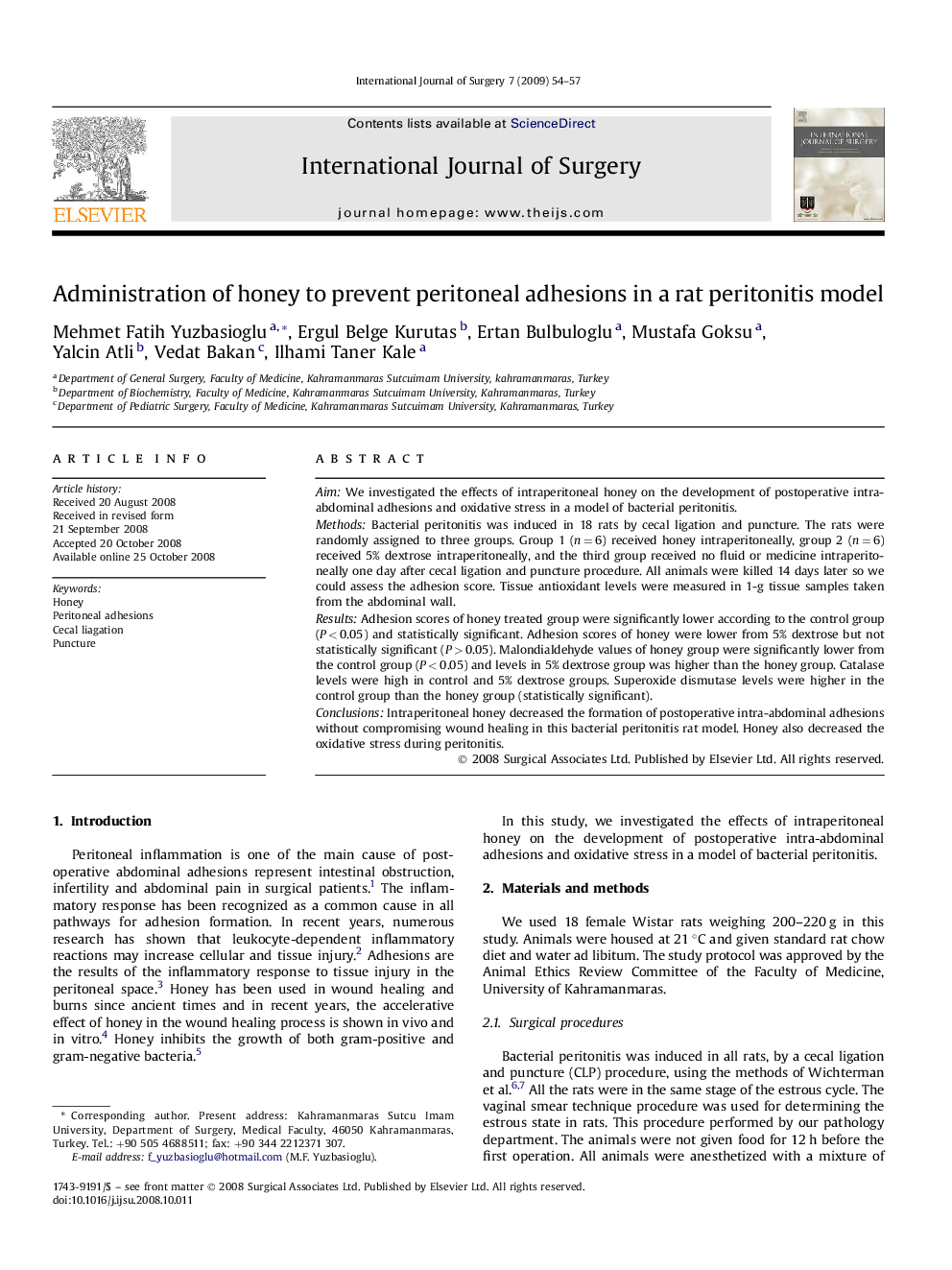| Article ID | Journal | Published Year | Pages | File Type |
|---|---|---|---|---|
| 4287545 | International Journal of Surgery | 2009 | 4 Pages |
AimWe investigated the effects of intraperitoneal honey on the development of postoperative intra-abdominal adhesions and oxidative stress in a model of bacterial peritonitis.MethodsBacterial peritonitis was induced in 18 rats by cecal ligation and puncture. The rats were randomly assigned to three groups. Group 1 (n = 6) received honey intraperitoneally, group 2 (n = 6) received 5% dextrose intraperitoneally, and the third group received no fluid or medicine intraperitoneally one day after cecal ligation and puncture procedure. All animals were killed 14 days later so we could assess the adhesion score. Tissue antioxidant levels were measured in 1-g tissue samples taken from the abdominal wall.ResultsAdhesion scores of honey treated group were significantly lower according to the control group (P < 0.05) and statistically significant. Adhesion scores of honey were lower from 5% dextrose but not statistically significant (P > 0.05). Malondialdehyde values of honey group were significantly lower from the control group (P < 0.05) and levels in 5% dextrose group was higher than the honey group. Catalase levels were high in control and 5% dextrose groups. Superoxide dismutase levels were higher in the control group than the honey group (statistically significant).ConclusionsIntraperitoneal honey decreased the formation of postoperative intra-abdominal adhesions without compromising wound healing in this bacterial peritonitis rat model. Honey also decreased the oxidative stress during peritonitis.
